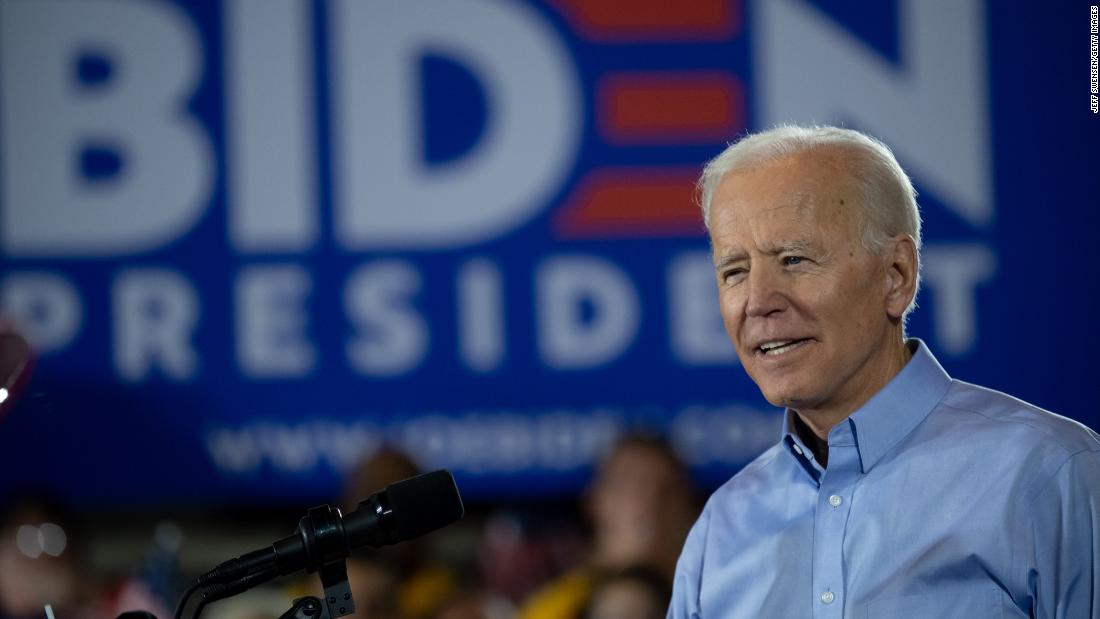
Voters who mostly struggled to figure out the differences between issues like whether Medicare for All was better than Medicare for those who wanted it were told by pundits and the media alike that they should select their party's nominee based on their substantive plans and policies. Candidates heard from those same sources that they needed to talk about issues. This view is not simply wrong because the current pandemic changed everything. It has always been wrong and mischaracterizes the nature of the presidency, and of American politics more deeply.
The Covid-19 crisis has reminded us that fixating on policy proposals and minor differences on issues during the primaries does us a disservice when it comes to choosing a nominee. The nation is now headed into an election without voters having had a proper chance to assess what matters most in a candidate: leadership style and crisis management. For example, the extent of Joe Biden's ability to delegate and to surround himself with experienced experts in a crisis is much more important than the specific details of a sweeping health care proposal that almost certainly would never become law anyway.
It is only now when Biden has sewn up the Democratic nomination that we are learning the answers to some of these questions. While the former vice president has kept a relatively low profile in recent weeks, Ron Klain, who very ably led the fight against Ebola, has emerged as Biden's point person on Covid-19. This is a reassuring sign that Biden would take a rational and sober approach to managing the pandemic. On the other hand, progressive Democrats are not encouraged by indications that Biden would have people like former Treasury Secretary Larry Summers direct the post-shutdown economic recovery. Many on the left view Summers as an advocate of the wealthy who has contributed to the dramatic rise in income inequality in recent years.
Less is known about Biden's leadership style, other than he has a strong ability to empathize and is loyal to his employees. Although he has been a powerful politician since the Nixon administration, we've not seen much of his management technique because he has never run anything bigger than the vice president's office. And while vice presidents like Biden are important presidential advisers, they do not have administrative responsibilities.
A primary system that gave us more insight into Biden's management style might, for example, have given us some perspective on how to assess his response to former aide Tara Reade's allegations that he sexually assaulted her in a Senate hallway in 1993. Biden categorically denied Reade's charges on May 1 -- weeks after Reade first made them in a podcast -- and only after his supporters had spoken out on his behalf.
The coronavirus pandemic is sui generis in modern American history, but almost all presidents confront crises that few, if any, candidates were thinking about when they won their party's nomination or when they took office. Just as Donald Trump's presidency has been taken over by the current pandemic, former President Barack Obama's first term was evaluated largely on his response to the economic downturn that occurred long after he had secured the Democratic nomination. Obama's predecessor, former President George W. Bush, promised a humbler foreign policy, suggesting less engagement with the rest of the world, but was forced to scrap that idea following the September 11th attacks on the US during his first year in office. His father, former President George H. W. Bush, spent most of his attention as president on the end of the Cold War and Iraq's invasion of Kuwait, neither of which was an issue when the elder Bush was elected in 1988.
Attempting to choose nominees based on policy specifics may make us feel like serious people, but it has little to do with the realities of governance or even the job of being president. In general, the specifics of each Democratic presidential candidate's plan are much less important than the views of the majority party in Congress. This is how American politics has worked for a long time and talk of a political revolution, having a plan for everything or proclaiming generational change was never going to change that.
Despite this, there were important differences between the candidates in the Democratic primary that were obscured by what were, in many cases, minor policy disagreements. Most candidates would, if elected, have had to pass policies within the same relatively narrow bandwidth. Thus it's positive approaches like Sen. Cory Booker's ability to inspire and to reach out to people with different views, Sen. Bernie Sanders' gift for speaking simple truths in simple language, Sen. Elizabeth Warren's skills at processing information and crafting detailed plans, former South Bend, Indiana mayor Pete Buttigieg's perspective as an extremely smart representative of a younger generation, Biden's calming and steady presence -- or negatives like Sanders' inflexibility or Biden's overconfidence in his ability to reach agreements with Republicans -- that define presidencies and determine how crises are handled.
During the primary those differences of style and approach were too frequently treated as peripheral. Too much of the primary season was spent on parsing policy instead of exploring the bigger picture leadership questions that really matter. This is a problem today not because the current crisis was unimaginable a year ago, but because a presidency without a major unexpected crisis is what is genuinely unimaginable.
"What" - Google News
May 05, 2020 at 04:55AM
https://ift.tt/2Szlmqf
What we don't know about Joe Biden - CNN
"What" - Google News
https://ift.tt/3aVokM1
https://ift.tt/2Wij67R
Bagikan Berita Ini















0 Response to "What we don't know about Joe Biden - CNN"
Post a Comment